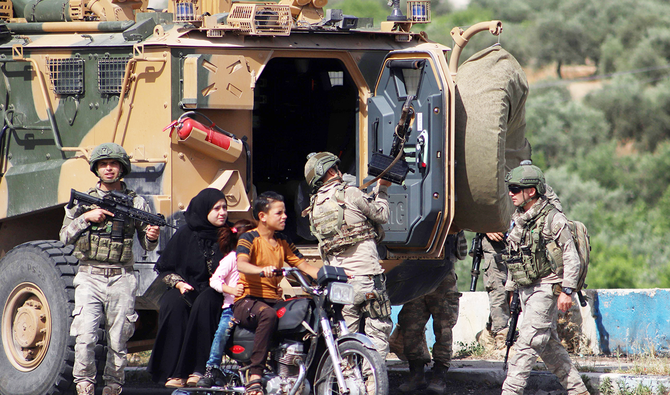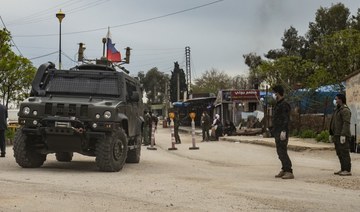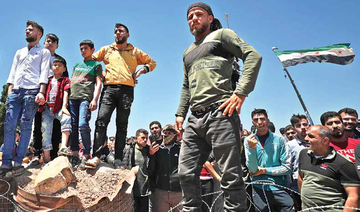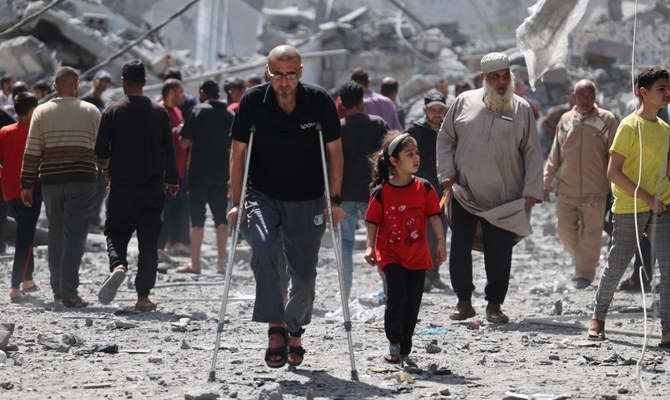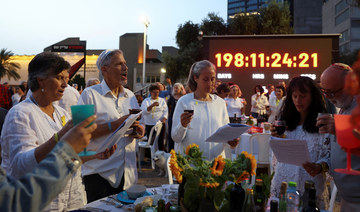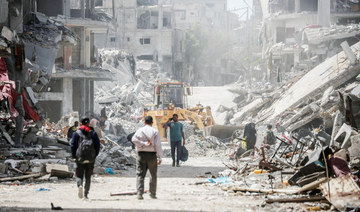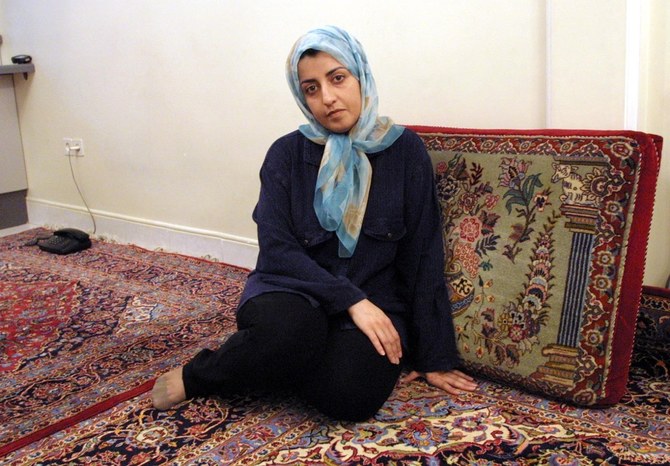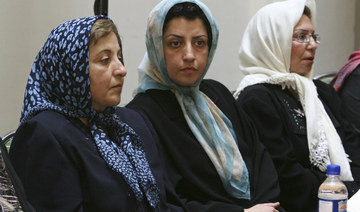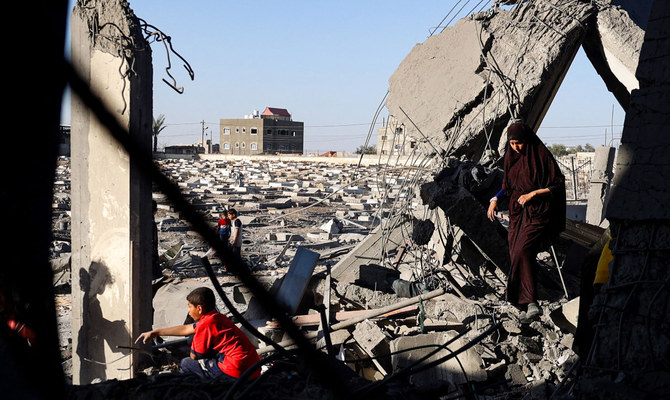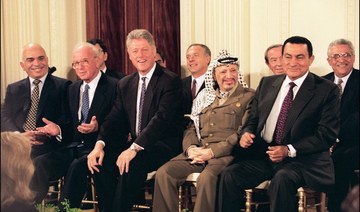BEIRUT/DAMASCUS: Russian airstrikes have hit Syria’s last major opposition bastion for the first time since a March cease-fire came into force, a war monitor said on Wednesday.
The Russian strikes on Tuesday evening and at dawn on Wednesday hit an area of the northwest where the boundaries of Hama, Idlib and Latakia provinces meet, the Syrian Observatory for Human Rights said.
The Hayat Tahrir Al-Sham alliance (HTS), led by Syria’s former Al-Qaida affiliate, and its hard-line allies enjoy a significant presence in the area, the Britain-based monitoring group added.
Home to some 3 million people, the Idlib region of the northwest is controlled by HTS and affiliated militant groups.
A Russian-backed regime offensive between December and March displaced nearly a million people in the region.
Some 840,000 of the nearly 1 million remain displaced, while some 120,000 have returned to their home communities since the cease-fire went into force, according to the UN.
The truce, which coincided with the coronavirus crisis, had put a stop to the relentless airstrikes by regime forces and their Russian allies that killed at least 500 civilians in four months.
The Observatory said the latest strikes were intended to push militants away from the key M4 highway in northern Syria, where Turkish and Russian forces often conduct joint patrols as part of the truce agreement.
They were also intended to push HTS and its allies further away from the Sahl Al-Ghab area in the north of Hama province, where government and Russian forces are present, it added.
The airstrikes triggered a fresh wave of displacement from Sahl Al-Ghab and the Jabal Al-Zawiya district of neighboring Idlib, the Observatory added.
Nearly half of the 3 million people living in the Idlib region have been displaced from other parts of Syria recaptured by the regime.
After holding barely a fifth of the country five years ago, Russian intervention has helped the regime reclaim control of more than 70 percent of Syria.
In the northwest, HTS and its allies control around half of Idlib province and slivers of territory in the neighboring provinces of Hama, Latakia and Aleppo.
The war in Syria has killed more than 380,000 people and displaced nearly half of the country’s pre-war population since it started in 2011.
The month of May saw the lowest civilian death toll since the start of the conflict nine years ago with 71 civilians reported killed, the Observatory said on Tuesday.
US sanctions
A new wave of US sanctions is about to hit the Assad regime this month.
The Caesar Syria Civilian Protection Act, which gained bipartisan support in Congress in December, envisages sanctions on Syrian troops and others responsible for atrocities committed during Syria’s civil war and funding for war crimes investigations and prosecutions. President Donald Trump later signed the National Defense Authorization Act, which includes the Caesar act, into law.
Caesar is a code name for a Syrian forensic photographer who took thousands of photographs of victims of torture and other abuses and smuggled them out of the country. The images, taken between 2011 and 2013, were turned over to human rights advocates, graphically exposing the scale of the Syrian regime’s brutal crackdown.
The bill applies sanctions to those who lend support to “the Assad regime’s military efforts” in the war, and grants authorities to the US secretary of state to support entities collecting evidence and pursuing prosecutions against those who have committed war crimes in Syria.
It gives the US another means to punish Bashar Assad and his allies with sanctions. Washington has already imposed sanctions on Assad and a number of his top officials, but the new authority allows foreign companies to be targeted if they are found to be supporting repression.



